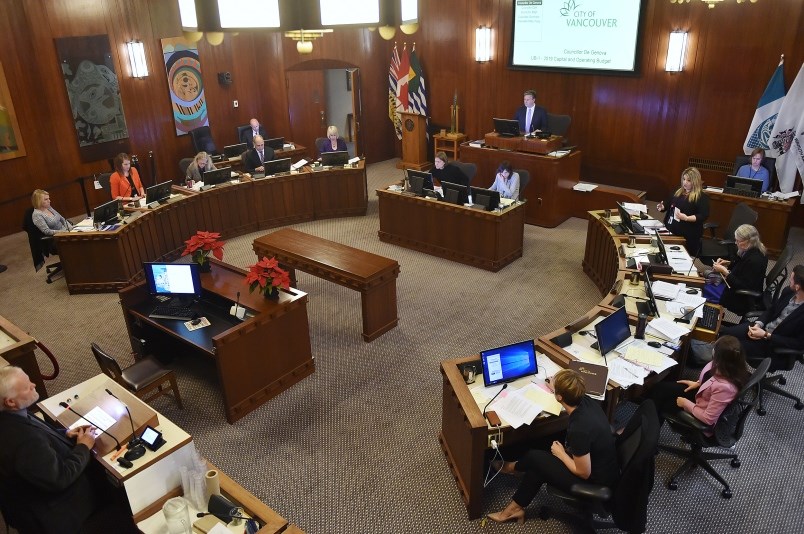The City of Vancouver says property owners can expect the biggest property tax hike — 8.2 per cent — in the past decade, if city council approves all the items listed in its 2020 draft operating budget.
Such a hike next year would be a jump of more than two per cent over this year’s increase of 6.1 per cent. Council set the 6.1 per cent rate partly to reduce the amount of tax paid by businesses.
The tax hike was 4.24 per cent in 2018 and 3.9 per cent in 2017. Taxes between 2012 and 2016 averaged two per cent, with Vancouver at one point having the third lowest property tax increase in the region.
The proposed 8.2 per cent hike is being driven by fixed costs — 3.5 per cent of the overall increase — and 2.4 per cent to “fill service gaps and address risk” such as hiring more police officers and firefighters ($8.2 million).
A city report says the remaining 2.3 per cent of the overall 8.2 per cent hike is tied to $23.8 million in new investments. That includes $6.8 million to “support and encourage more zero emission buildings in the city, address urban heat islands, plan for sea level rise challenge and continue tree planting to improve the urban forest canopy.”
An 8.2 per cent hike next year would mean an additional $211 in tax for a median residential property assessed at $1.7 million. For a business property assessed at $976,000, the increase would equate to an additional $270, the report said.
That hike does not include the anticipated increase in utility fees.
When fees for water, sewer and solid waste fees are added, the total bill for a home assessed at $1.7 million is estimated to cost $354 more than this year. The total increase for a business assessed at $976,000 would be $406.
For property owners who don’t fall under those assessment levels, or who own a condo instead of a house, the proposed tax hike could mean a higher cost, or none at all.
“While the council-directed property tax increase applies to the overall tax levy, the extent of change, year over year, in an individual property’s tax is determined primarily by how that property’s assessed value has changed relative to the average change within its property class,” the report said.
“Properties with a higher increase in value relative to the average change of their class could experience a much higher increase in property tax beyond the council-directed increase, while properties with a lower increase in value could experience no change or a reduction in property tax.”
As they have done each year, city staff pointed out in its report that the city does not generate higher property tax revenue because of rising property values. That’s because city council determines the total tax levy to be collected.
“To establish the city’s tax rates, Vancouver city council divides the tax levy by the assessment base provided by B.C. Assessment,” the report said.
“Under this approach, property tax increases are driven by the city’s funding requirement to support the annual budget, not by rising property values.”
Final property taxes and fees for 2020 will be set after council approves a final budget at its Dec. 10 meeting. Council will first meet Dec. 3 to discuss the budget report, which is more than 600 pages.
The 2020 budget is pegged at $1.6 billion, a $111-million increase over this year’s budget. More than half of the budget is funded by property tax.
mhowell@vancourier.com
@Howellings



